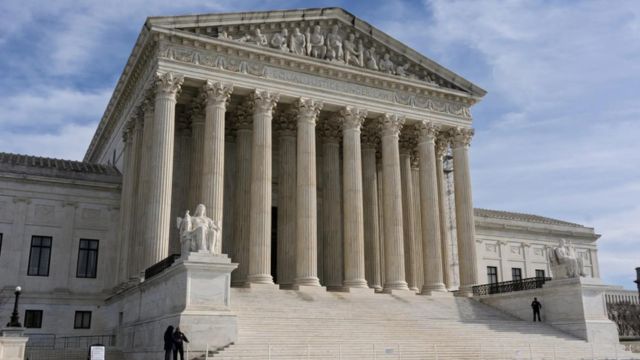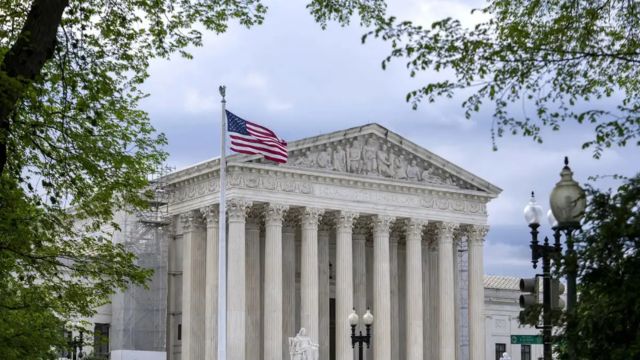On Friday, the Supreme Court handed the Department of Government Efficiency (DOGE) two significant victories. First, the Court ruled that DOGE could access sensitive Social Security data of millions of Americans in order to combat fraud and modernize outdated systems. At the same time, the Court temporarily paused a lower court’s decision, which had required DOGE to release documents as part of a transparency lawsuit.
Access to Sensitive Data for Modernization and Fraud Prevention
The most important of the two rulings allowed DOGE to review records from the Social Security Administration (SSA). DOGE argued that the access was necessary for addressing issues like fraud and modernizing systems. Critics, however, raised concerns that DOGE could misuse the sensitive data in what some described as a “fishing expedition.”
The court’s unsigned order stated: “We conclude that, under the present circumstances, SSA may proceed to grant members of the SSA DOGE Team access to agency records to perform their duties.” This decision significantly broadened the scope of DOGE’s access to Social Security data.
Temporary Halt to Transparency Lawsuit
In a separate ruling, the Supreme Court intervened in a lawsuit that claimed DOGE should be subject to public records laws like other government agencies. Lower courts had ruled that DOGE should turn over documents related to its operations, but the Supreme Court paused that order. While it left open the possibility for some documents to eventually be released, it asked lower courts to narrow the scope.
The three liberal justices—Sonia Sotomayor, Elena Kagan, and Ketanji Brown Jackson—dissented from this ruling. Their dissent reflects ongoing concerns regarding transparency and privacy, especially given DOGE’s rapid efforts to reshape government operations.
Concerns Over Privacy Risks and Data Security

The ruling raised alarms about the privacy risks to millions of Americans. Justice Jackson warned that the decision could expose sensitive data, including Social Security numbers, health records, and earnings information, to unnecessary risks. This decision would potentially give DOGE staff access to highly private data, which many privacy advocates fear could be mishandled.
Kathleen Romig, director at the Center on Budget and Policy Priorities, expressed concern that DOGE had previously accessed sensitive data from non-secure locations. She pointed out that the operatives handling this data could have access to critical personal information without adequate safeguards, raising questions about security and accountability.
Legal Disputes Over the Need for Extensive Data Access
Earlier in the legal proceedings, a district judge ruled that DOGE’s access to SSA’s data violated the Privacy Act. The judge also pointed out that the administration had not adequately explained why such sweeping access was necessary. The judge argued that DOGE could achieve its goals using anonymized data, rather than accessing highly sensitive personal information.
The 4th US Circuit Court of Appeals had upheld the lower court’s ruling, which temporarily halted DOGE’s data access. However, the Supreme Court overruled that decision, reinstating DOGE’s access.
Justifications for DOGE’s Data Access Projects
The Trump administration had argued that DOGE’s access to the Social Security records was justified by specific projects aimed at identifying fraud and modernizing government systems. One project, titled “Are You Alive?”, seeks to prevent improper payments to deceased individuals. Another, the “Death Data Clean Up Project,” aims to update records of individuals the government believes are deceased. Finally, the “Fraud Detention Project” is focused on detecting fraud related to wage reporting and changes to direct deposit information.
Frank Bisignano, the new commissioner of SSA, praised the ruling, calling it a “major victory for American taxpayers.” He emphasized that the ruling would allow SSA to continue modernizing government systems and improving outcomes for beneficiaries.
“The Social Security Administration will continue driving forward modernization efforts, streamlining government systems, and ensuring improved service and outcomes for our beneficiaries,” he wrote on X.
Backlash and Warnings from Advocacy Groups
Despite the administration’s celebration, the decision has faced significant opposition from advocacy groups. A coalition of labor and advocacy organizations, represented by Democracy Forward, criticized the ruling as dangerous for privacy, warning that it would allow the administration to “steal Americans’ private and personal data.” They argue that this ruling sets a dangerous precedent, particularly regarding data security and transparency.
The Role of DOGE and Transparency Concerns
DOGE, a body within the White House tasked with providing recommendations on government efficiency, has been at the center of a legal battle regarding its role and transparency. Critics argue that DOGE’s sweeping access to government data raises serious questions about oversight and public accountability.
Citizens for Responsibility and Ethics in Washington (CREW) filed a lawsuit to gain access to DOGE’s records, seeking to understand more about its operations. The Trump administration has fought to keep these records confidential, arguing that DOGE, as an advisory body, should be exempt from public records requests under the Freedom of Information Act (FOIA).
The Supreme Court temporarily blocked the lower court’s ruling that would have allowed CREW to depose DOGE leadership and access documents. While the Court limited the scope of discovery, it did allow some documents to be made available, signaling potential future challenges to DOGE’s secrecy.
Is DOGE Subject to FOIA?
The ongoing debate centers on whether DOGE should be considered an official agency subject to FOIA, which governs public access to government documents. The Trump administration has insisted that DOGE is a “presidential advisory body,” and therefore, not subject to the same transparency requirements as other government agencies.
This case could set important precedents for how much control the public has over government entities and whether advisory bodies like DOGE will be held accountable to the same standards of transparency.
Stay updated with the latest news in medical supplies and clinical engineering! Visit JandJSupplies for insightful articles, expert opinions, and in-depth coverage of the healthcare industry. Whether you’re a professional or simply interested, we provide the knowledge you need. Explore today and stay informed!








